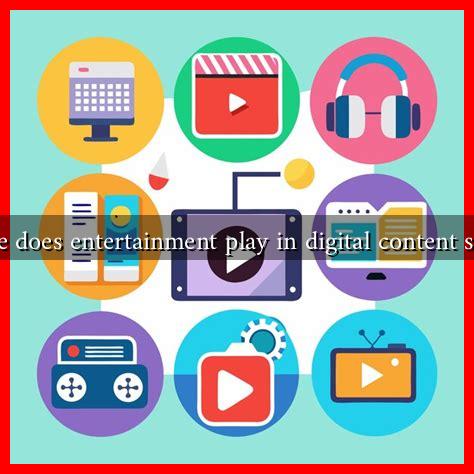-
Table of Contents
- What Role Does Entertainment Play in Digital Content Strategies?
- The Importance of Entertainment in Digital Content
- Types of Entertaining Content
- Case Studies: Successful Implementation of Entertainment in Content Strategies
- Statistics Supporting the Role of Entertainment
- Conclusion: The Future of Entertainment in Digital Content Strategies
What Role Does Entertainment Play in Digital Content Strategies?
In the rapidly evolving landscape of digital marketing, entertainment has emerged as a pivotal component of content strategies. As consumers increasingly seek engaging and enjoyable experiences online, brands must adapt their approaches to capture attention and foster loyalty. This article explores the multifaceted role of entertainment in digital content strategies, highlighting its significance, benefits, and practical applications.
The Importance of Entertainment in Digital Content
Entertainment serves as a powerful tool in digital content strategies for several reasons:
- Captures Attention: In a world saturated with information, entertaining content stands out. It grabs the audience’s attention and encourages them to engage with the brand.
- Enhances Brand Recall: Fun and entertaining content is more likely to be remembered. This can lead to increased brand recognition and loyalty.
- Encourages Sharing: Engaging content is often shared across social media platforms, amplifying reach and visibility.
- Builds Emotional Connections: Entertainment fosters emotional engagement, allowing brands to connect with their audience on a deeper level.
Types of Entertaining Content
Brands can leverage various forms of entertaining content to enhance their digital strategies:
- Videos: Short, humorous, or informative videos can capture attention quickly. For instance, brands like Dollar Shave Club have successfully used entertaining videos to convey their message and drive sales.
- Memes: Memes resonate with younger audiences and can be a fun way to engage with current trends. Brands like Wendy’s have effectively used memes to create a relatable online persona.
- Interactive Content: Quizzes, polls, and games can engage users actively. For example, BuzzFeed’s quizzes not only entertain but also drive significant traffic to their site.
- Podcasts: With the rise of audio content, entertaining podcasts can build a loyal audience. Brands like Mailchimp have created engaging podcasts that provide value while entertaining listeners.
Case Studies: Successful Implementation of Entertainment in Content Strategies
Several brands have successfully integrated entertainment into their digital content strategies, yielding impressive results:
- Red Bull: Known for its extreme sports content, Red Bull has built an entire media empire around entertaining videos and events. Their YouTube channel features thrilling stunts and athlete stories, attracting millions of views and reinforcing their brand identity.
- Old Spice: The “Old Spice Guy” campaign revitalized the brand’s image through humorous and memorable commercials. The campaign not only increased sales but also generated significant social media buzz.
- GoPro: By encouraging users to share their own adventure videos, GoPro has created a community of brand advocates. Their user-generated content is both entertaining and showcases the product’s capabilities.
Statistics Supporting the Role of Entertainment
Data underscores the effectiveness of entertainment in digital content strategies:
- According to a study by HubSpot, 54% of consumers want to see more video content from brands they support.
- A report from Sprout Social found that 70% of consumers feel more connected to brands that use humor in their marketing.
- Research by Content Marketing Institute indicates that 78% of consumers believe that organizations providing custom content are interested in building good relationships.
Conclusion: The Future of Entertainment in Digital Content Strategies
As digital landscapes continue to evolve, the role of entertainment in content strategies will only grow in importance. Brands that prioritize engaging and entertaining content will not only capture attention but also foster lasting relationships with their audiences. By leveraging various forms of entertainment—be it videos, memes, or interactive content—companies can enhance their digital presence and drive meaningful engagement.
In summary, entertainment is not just a supplementary aspect of digital content strategies; it is a fundamental element that can significantly impact brand perception and consumer behavior. As the digital world becomes increasingly competitive, embracing entertainment as a core strategy will be essential for brands aiming to thrive in the future.
For more insights on digital marketing strategies, visit HubSpot’s Marketing Statistics.

